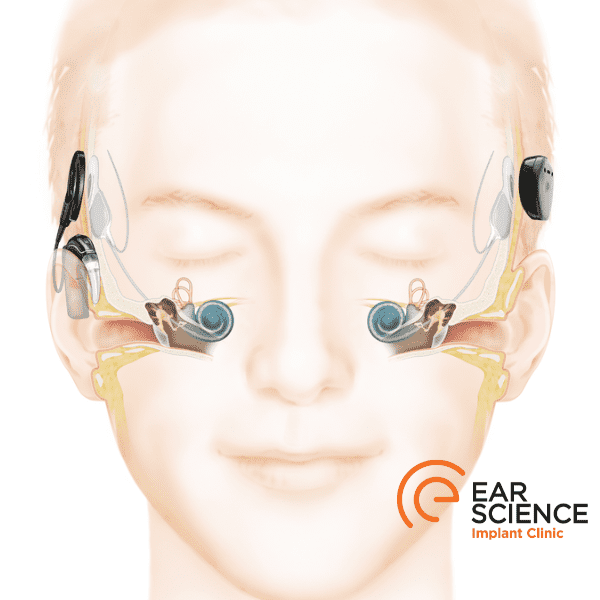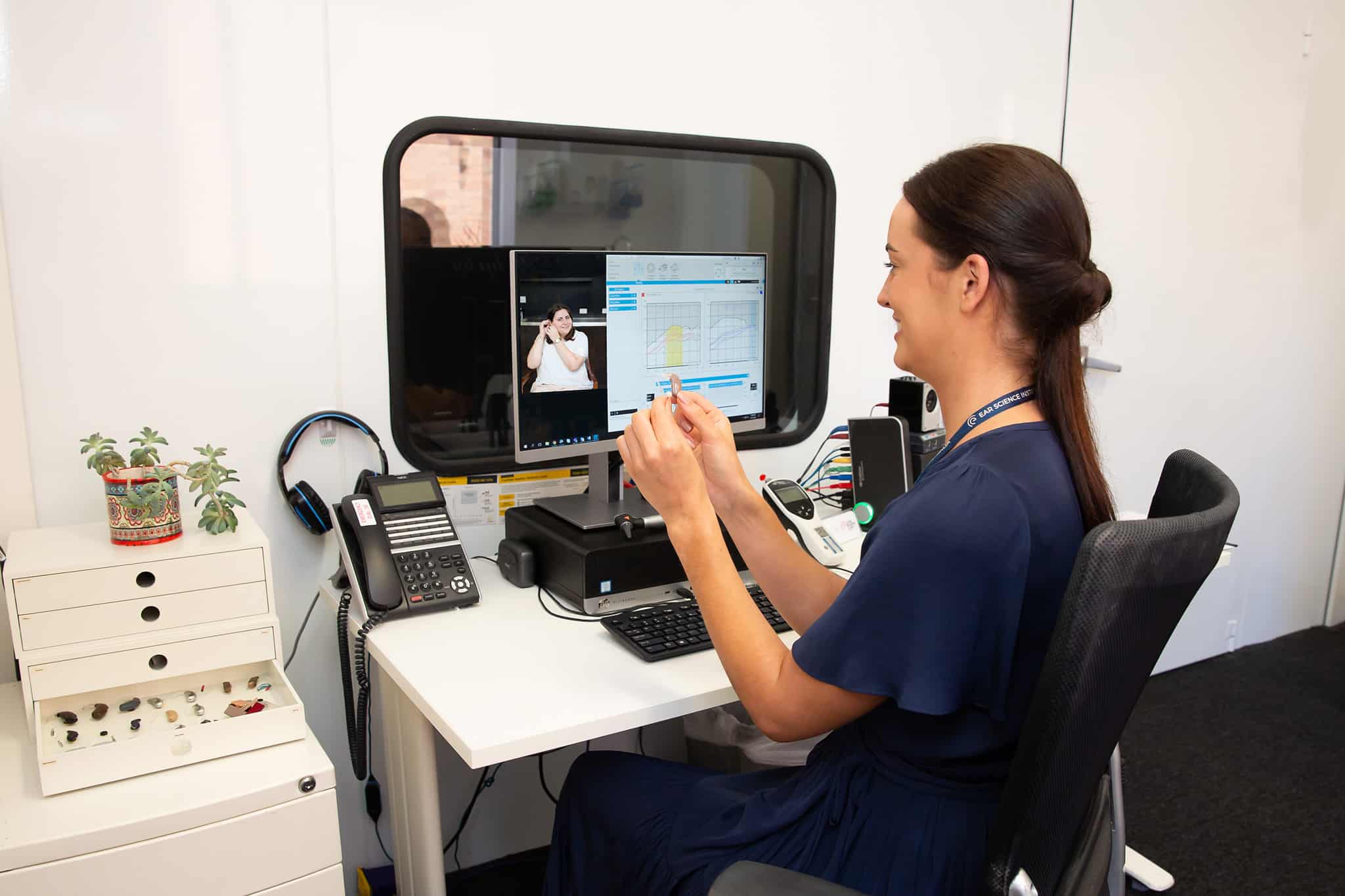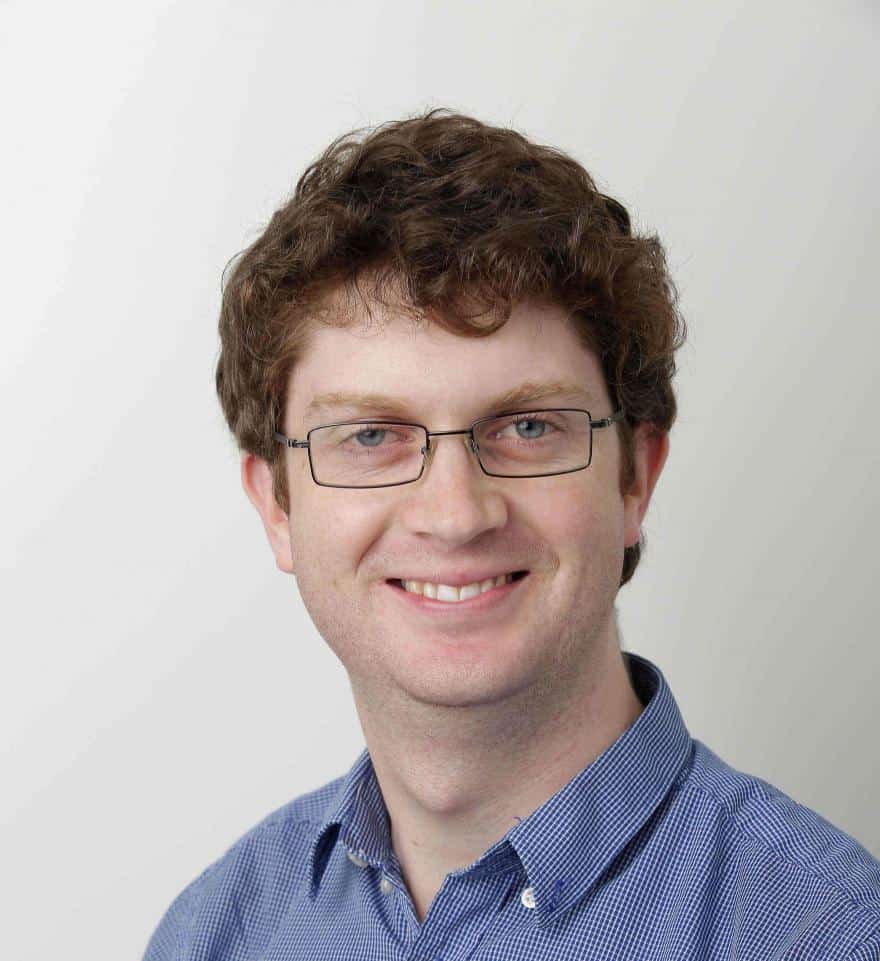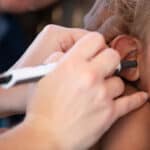A digital platform to enhance connectivity, consistency and access to hearing and mental health services to reduce isolation and distress among Aboriginal children and young people.
Ear Science Institute Australia has been awarded $50,000 by the Western Australian Future Health Research and Innovation Fund, Innovation Challenge 2021: Child and Youth Mental Health, an initiative of the WA State Government.
We are closing the gap in Aboriginal child and youth mental health through co-designing digital health and hearing solutions to improve health outcomes for Aboriginal and Torres Strait Islander peoples.
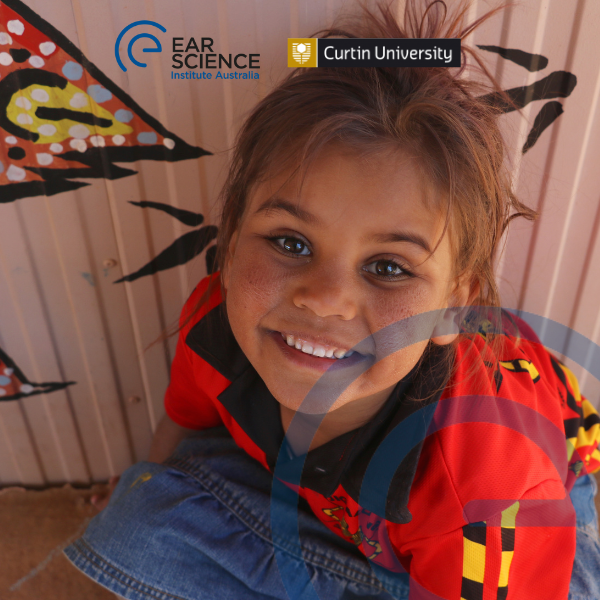
We know that good ear health is critical to the development of all children. However, chronic ear disease and permanent hearing loss rates in rural and remote Western Australia are unacceptably high. We see a significant impact on social, educational, and mental health outcomes, hampering the preservation of oral traditions and stories being passed to the next generations.
Thanks to funding from the Western Australian Future Health Research and Innovation Fund, Ear Science Institute Australia (Ear Science), in collaboration with Curtin University, will address child and youth mental health in Western Australia (WA). The partnership will leverage existing digital health technologies to target Aboriginal young people with ear disease and hearing loss to support their mental health and wellbeing.
Lead investigator, Professor Christopher Lawrence, Dean of Indigenous Engagement, Faculty of Science and Engineering at Curtin University, and proud Nyungar (Whadjuk and Ballardong) person, developed the mobile app #thismymob in 2016 when he was based at the University of Technology Sydney. This social and emotional digital health platform allows local communities to discuss and share information relevant to their mob. It is a local resource for important health information and advice.
“This is where people can keep in touch with their extended family and extended mob. Professor Lawrence explained, “they can share information, connect with new people and notify others of events in their community”.
Through co-design consultations with key community leaders, medical professionals, and youth representatives, the project team aims to build on the existing capabilities of #thismymob to reduce the mental health burden on Aboriginal children and young people with ear disease and hearing loss.
Each community will have its own needs. Initially, the project team will work with the South West Aboriginal Service in Bunbury, Narrogin and Katanning and the Puntukurnu Aboriginal Medical Service in the Pilbara.
“We are going to the local communities in the South West and in the Pilbara and speaking with people about their concerns with ear health and mental wellbeing. We want to know what features will help them and how we can connect people to share their journeys to enhance their health and social outcomes,” said Professor Lawrence.
The platform is expected to enhance connectivity, consistency and continued access to hearing and mental health services to reduce isolation and distress among Aboriginal children and young people.
Members of the project team alongside Professor Lawrence will be Ms Tania Naake, Audiologist at Ear Science, Adjunct Professor Robert Eikelboom, Research Manager-Corporate at Ear Science, Professor Bronwyn Myers, Clinical Psychologist and Director of Curtin’s enAble Institute and Associate Professor Aneesh Krishna from Curtin’s School of Electrical Engineering, Computing and Mathematical Sciences.
The research is based on Professor Lawrence’s 2016 ARC Indigenous Discovery Award and is being done with a team of researchers from UTS and University of Melbourne. Professor Lawrence is now leading this part of the research with Curtin colleagues.
The Future Health Research and Innovation Fund is an initiative of the WA State Government, providing a secure source of funding to drive health and medical research, innovation and commercialisation. These activities improve the health and prosperity of all Western Australians. It also provides an opportunity to diversify the economy, create jobs, improve the health system’s sustainability, and position Western Australia as a leader in research and innovation.
For the full list for award recipients | https://fhrifund.health.wa.gov.au/News-and-Events/2022/06/20/Investment-in-innovation-projects-to-improve-mental-health-in-children-and-young-people

